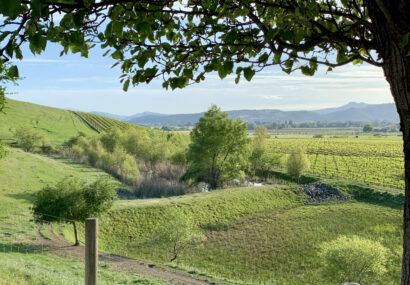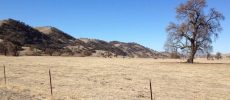A pipeline developer sought to rely on a nationwide permit under the federal Clean Water Act (CWA) for various stream crossings. However, the pipeline’s Federal Energy Regulatory Commission (FERC) approval allowed stream-crossing construction techniques at odds with the applicable state conditions on the nationwide permit at issue. The Fourth Circuit held that the U.S. Army Corps of Engineers (Corps) has no statutory authority to impose a “special” condition that, in effect, nullifies a state-imposed condition. [Sierra Club v. U.S. Army Corps of Engineers, 909 F.3d 635 (4th Cir. Nov. 27, 2018).]
Background
Mountain Valley Pipeline, LLC, seeks to build a 304-mile, 42-inch diameter natural gas pipeline through Virginia and West Virginia along a path that crosses:
- . . .591 federal water bodies, including four major rivers (the Elk, Gauley, Greenbrier, and Meadow), three of which are navigable-in-fact rivers regulated by Section 10 of the Rivers and Harbors Act of 1899 (the Elk, Gauley, and Greenbrier). 33 U.S.C. § 403.
Mountain Valley obtained certification to build and operate the pipeline from FERC, and then sought clearance from the Corps to discharge fill into water of the United States, pursuant to the Clean Water Act. 33 U.S.C. § 1344(a).
Rather than seek an individual permit, Mountain Valley sough coverage under nationwide permit 12 (NWP 12):
- . . .which acts as a standing authorization for developers to undertake an entire category of activities deemed to create only minimal environmental impact. Chrutchfield v. Cty. of Hanover, Va., 325 F.3d 211, 214 (4th Cir. 2003).
Potential permittees “must satisfy allterms and conditions of an NWP for a valid authorization to occur.” Citing 33 C.F.R. § 330.4(a) (emphasis original):
- NWP 12. . .authorizes the discharge of dredged or fill material into federal waters attributable to ‘the construction, maintenance, repair, and removal of utility lines and associated facilities in waters of the United States.’
The applicant for a § 1334 permit, including coverage under NWP 12:
- . . .‘shall provide the [Corps] a certification from the State in which the discharge originates or will originate,’ unless the state waives, either explicitly or by inaction, its right to independently certify the project. 33 U.S.C. § 1341(a)(1).
When the state’s certification imposes additional conditions, the Corps must incorporate those as conditions on the permit. 33 C.F.R. § 330.4(c)(2). “West Virginia imposed, after providing public notice and receiving public comment, several additional ‘Special Conditions’ as part of its certification of NWP 12,” including Special Condition C limiting “construction of stream crossings to a 72-hour window, except for certain rivers not at issue in the instant case.”
In early 2017, West Virginia issued certification of the project; environmental groups challenged that certification. The state ultimately requested that the Fourth Circuit vacate the certification and remand it to the state for further evaluation. Once that request was granted, the state:
- . . .purported to waive its requirement that Mountain Valley obtain an Individual 401 Water Quality Certification. Accordingly, Mountain Valley does not have an individual state water quality certification under Section 401 of the Clean Water Act.
The Corps issued a:
- . . .the Verification concluding that the Pipeline project meets the criteria of NWP 12, provided Mountain Valley ‘compl[ies] with all terms and conditions of the enclosed material and the enclosed special conditions.’
But the Verification allowed for Mountain Valley to use:
- . . .plans to use a ‘dry open cut’ method to construct the Pipeline through four major, Corps-managed rivers (the Elk, Gauley, Greenbrier, and Meadow), which requires installing cofferdams directing water away from a riverbed construction area to minimize sedimentation and erosion. This ‘dry’ open-cut method takes longer than ‘wet’ open-cut construction, which involves constructing a pipeline while water continues to flow over the riverbed.
The environmental groups sought a stay of the Verification on grounds that contrary to the 72-hour limit set forth in Special Condition C, Mountain Valley expected to take four-to-six weeks to construct river crossings for the Pipeline through the Elk, Gauley, Greenbrier, and Meadow Rivers. The Corps then “suspended” the Verification to consider “the extent of [Mountain Valley’s] compliance with Special Condition C’s 72-hour limit on construction of stream crossings.
The Corps and the state then corresponded to establish that the state believed the use of the ‘dry’ cut construction method … is more protective of water quality at each of the crossings’ and ‘provides more stringent water quality protection that the time requirement of Special Condition C. However, the state “did not notify or solicit feedback from the public in any manner before responding to the Corps’ letter.” Reinstating the Verification, the Corps relied on its authority to modify a “case specific activity’s authorization under an NWP” pursuant to 33 C.F.R. § 330.5(d)(1), imposing a new Special Condition 6 providing for use of the dry-cut construction method at specific crossings and stating that Special Condition 6 “shall apply in lieu of Special Condition C.”
Various environmental groups brought suit, challenging the Corps’ actions under the Administrative Procedures Act. 5 U.S.C. § 706(2)(A).
The Fourth Circuit’s Decision
Standard of Review and Agency Deference
The Fourth Circuit first rejected both Chevron and Skidmoredeference as applied to the Corps’ actions. Chevrondeference did not apply because the Corps’ interpretation of the CWA and its regulations did not “derive[] from notice-and-comment rulemaking.” Knox Creek Coal Corp. v. Sec’y of Labor, Mine Safety & Health Admin., 811 F.3d 148, 159 (4th Cir. 2016). Chevrondeference may yet apply if the agency decision at issue nonetheless bears the “procedural hallmarks of legislative decision-making,” including “[a]t minimum … future application to claim rulemaking power.” Sierra Club v. U.S. Dep’t of the Interior, 899 F.3d 260, 287 (4th Cir. 2018). However, the court pointed out that:
- . . .the imposition of Special Condition 6 is highly specific to the four river crossings across the Greenbrier, Gauley, Elk, and Meadow Rivers, and makes no mention of the Condition even applying to all future crossings across those rivers. . . .Nor does the Reinstatement indicate any ‘adversarial or deliberative process where opposing views were presented or considered’ with respect to whether the Corps has the statutory authority to substitute its own conditions in place of state-imposed conditions. Sierra Club, 899 F.3d at 288.
Rather, the Corps’ decisions here resulted from “a one-off, independent, and case-specific determination.”
As forSkidmore deference—which may be warranted depending on “the thoroughness evident in [the agency’s] consideration, the validity of its reasoning, its consistency with earlier and later pronouncements, and all those factors which give it power to persuade, if lacking power to control,” Skidmore v. Swift & Co., 323 U.S. 124, 140 (1944)—none was due as the Corps’ decision “is completely devoid of any statutory analysis—Special Condition 6 does not even reference the Clean Water Act”:
- There is no effort made to explain or justify how the statutory text affords the Corps the authority to issue one special condition. . .in lieu of” a state-imposed condition, as it did in replacing Special Condition C with Special Condition 6.
The Clean Water Act Claim
Turning to the text of the CWA itself, the Fourth Circuit concluded:
- . . .[t]he plain language of Section 1341(d) of the Clean Water Act provides that any state certification ‘shallbecome a condition on any Federal license or permit.’ (Emphasis original.) The court cited Snoqualmie Indian Tribe v. F.E.R.C., 545 F.3d 1207, 1218 (9th Cir. 2008), as collecting cases to establish that:
- . . .[e]very Circuit to address this provision has concluded that ‘a federal licensing agency lacks authority to reject [state Section 401 certification] conditions in a federal permit.’
As Special Condition 6 is inimical to Special Condition C, the Corps lacked any statutory authority to impose it, and therefore in reinstating the Verification the agency acted without authority of law.
Conclusion and Implications
Agency deference is not always deference. When squaring the circle of competing conditions on permits from various cooperative, supportive agencies, as the Fourth Circuit demonstrated, it is vitally important to guard against agency actions that overreach statutory authority. The court’s opinion is available online at: http://www.ca4.uscourts.gov/Opinions/181173R1.P.pdf
(Deborah Quick)



